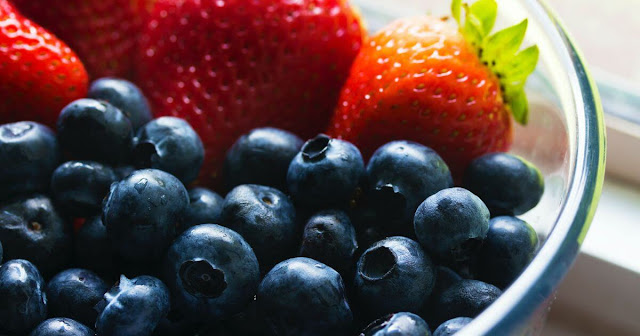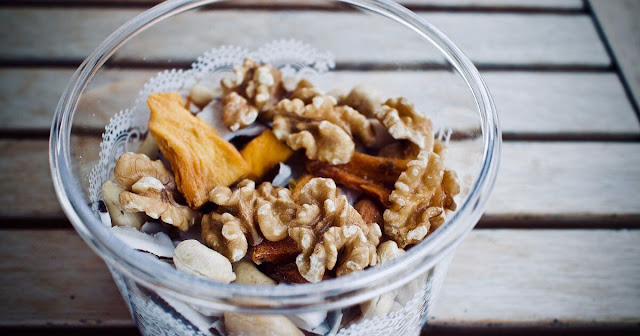Dry Fruits for Weight Gain
When it comes to discussions about weight management the focus often leans towards weight loss. However, for individuals striving to gain weight in healthy manner, dry fruits present a valuable and nutritious option. While these gems from nature are often overlooked in weight gain conversations they offer host of essential nutrients that can aid in healthy weight gain while providing numerous health benefits. In this article, we delve into the world of dry fruits, exploring their potential role in promoting weight gain, shedding light on their nutritional value and providing practical tips for incorporating them into a balanced diet.
Why is gaining weight important?
People in the India, United States Uk etc are underweight. Some individuals may be naturally underweight due to genetics or a being underweight may also indicate poor nutrition or underlying health conditions. Additionally, many people who are not clinically underweight may still want to gain muscle and put on weight for other reasons. Whether you’re underweight or attempting to gain muscle weight, the main principles are the same.What does it mean to be underweight?
According to the Centers for Disease Control and Prevention (CDC), being underweight is about twice as common among women compared with men. In a U.S. survey that grouped participants into men and women, 1.3% of men and 2% of women 20 years and older are underweight.
Understanding Dry Fruits:
Nutritional Benefits of Dry Fruits:
Dry fruits are also abundant in vitamins and minerals, including vitamin E, vitamin B complex, magnesium, calcium, potassium. These nutrients are crucial for overall health and play vital role in supporting various bodily functions. Vitamin E acts as an antioxidant, protecting cells from damage, while the B vitamins are involved in energy production and metabolism. Additionally, minerals like magnesium and calcium are essential for bone health, while potassium help regulate blood pressure.
To effectively utilize dry fruits for weight gain, it is important to incorporate them strategically into your diet. Here are some practical tips:
- Snack on a handful of mixed dry fruits between meals to increase calorie intake.
- Add chopped dry fruits to your morning cereal, oatmeal or yogurt for a nutrient-packed and calorie dense breakfast.
- Include dry fruits in homemade trail mix or granola bars for a convenient, on the go snack.
- Enhance the flavor and nutritional value of salads by adding a handful of chopped nuts or dried fruits.
- Incorporate dry fruits into your baking recipes, such as cookies, muffins, and bread, for added taste and texture.
- Use nut butter such as almond or cashew butter as a spread on whole-grain toast or as a dip for fruits and vegetables.
- Experiment with different dry fruits to diversify your nutrient intake and enjoy a variety of flavors.
Almonds
Almonds are rich in healthy fats, protein, fiber, and vitamin E. They provide good source of calories and help maintain a healthy weight. Additionally, almonds support muscle growth and repair, making them an ideal snack for those aiming to gain weight in a healthy manner.Walnuts
Walnuts are a nutrient dense dry fruit, packed with healthy fats, omega 3 fatty acids, protein, and fiber. They contribute to satiety and provide an excellent source of energy. Walnuts can be enjoyed as a standalone snack or added to salads, oatmeal or baked goods.Cashews
Cashews are a delicious and versatile dry fruit, loaded with healthy fats, protein, fiber, and various vitamins and minerals. They offer a good amount of calories and can be enjoyed as a snack, in stir fries, or as a creamy addition to sauces and desserts.Pistachios
Pistachios are known for their vibrant green color and delightful taste. They contain healthy fats, protein, fiber and antioxidants. Pistachios promote satiety, support heart health, and contribute to weight gain when consumed in moderation.Dates
Dates are naturally sweet and provide a concentrated source of energy. They are packed with natural sugars, fiber, potassium, magnesium, and iron. Dates can be consumed as a quick snack or used as a natural sweetener in smoothies, energy balls, and baked goods.Raisins
Raisins are dried grapes, rich in natural sugars, fiber and antioxidants. They are a convenient and portable snack that provides a burst of energy. Raisins can be added to trail mixes, cereals or enjoyed on their own to increase calorie intake.Prunes
Prunes or dried plums are high in fiber, antioxidants, potassium and vitamin K. They support digestive health and provide natural way to increase calorie intake. Prunes can be consumed as a snack or used in baking recipes.Brazil Nuts
Hazelnuts
Hazelnuts are packed with healthy fats, fiber and various vitamins and minerals. They offer a good amount of calories and can be consumed as a standalone snack, added to baked goods or used as a topping for salads or desserts.Macadamia Nuts
Macadamia nuts are known for their rich, buttery flavor and creamy texture. They are high in healthy fats, providing a dense source of calories. These nuts also offer essential nutrients such as fiber, magnesium and vitamin B6, making them a valuable addition to a weight gain diet.Pecans
Pecans are a delicious and versatile dry fruit, containing healthy fats, fiber and various vitamins and minerals. They contribute to energy production and provide satiety, aiding in healthy weight gain. Pecans can be enjoyed as a snack or incorporated into recipes like salads, oatmeal or baked goods.Apricots
Dried apricots are a sweet and nutritious option for weight gain. They are rich in natural sugars, fiber, potassium and vitamins A and C. These dried fruits can be consumed as a snack, added to trail mixes or used in recipes like granola bars or desserts.Fig
Figs are a nutrient dense dry fruit, packed with fiber, potassium and various antioxidants. They provide a good amount of calories and promote healthy digestion. Figs can be enjoyed as a snack, paired with cheese or incorporated into recipes like salads or desserts.Cranberries
Pine Nuts
Pine nuts are a delicious addition to a weight gain diet. They contain healthy fats, protein and various vitamins and minerals. Pine nuts can be enjoyed in pesto sauces, sprinkled over salads or used as a topping for roasted vegetables.Coconut
Chia Seeds
Hemp Seeds
Hemp seeds are a complete protein source containing all essential amino acids. They are also rich in healthy fats, fiber and minerals such as magnesium and iron. Incorporate hemp seeds into your diet by adding them to salads, smoothies or homemade energy bars.Flaxseeds
Sesame Seeds
Pumpkin Seeds
Sunflower Seeds
Dried Blueberries
Dried blueberries are a flavorful and nutritious dry fruit option. They are rich in antioxidants, fiber and vitamins C and K. Added dried blueberries into your diet by adding them to cereals, trail mixes or using them in baking recipes like muffins or granola bars.Dried Mango
Conclusion
Dry fruits provide a wide range of options that can assist in healthy weight gain. Almonds, walnuts, cashews, pistachios, dates, raisins and prunes are just a few examples of nutrient rich dry fruits that provide essential fats, fiber, vitamins, minerals and antioxidants. These offerings from nature not only contribute to weight gain but also promote overall well being. Remember to consume dry fruits in moderation, as part of a balanced diet and combine them with regular physical activity for optimal results. With the right approach and incorporating these nutritious dry fruits into your daily routine you can achieve healthy weight gain and enjoy the numerous benefits they offer.What are prunes?
Prunes are dried plums known for their wrinkled appearance. They are a rich source of dietary fiber, antioxidants and minerals like potassium. Prunes are commonly consumed to aid digestion and reduce constipation. Their sweet and sour taste makes them a versatile ingredient in both sweet and savory dishes.
What are raisins?
Raisins are dried grapes, usually made from varieties such as Thompson Seedless. They are popular for their sweet and chewy texture. Raisins are commonly used in baking, cooking and as a snack. They are a good source of fiber, potassium and antioxidants.
What are figs?
Figs are sweet, pear-shaped fruits that have a unique texture and flavor. They can be consumed fresh or dried. The flesh of figs is soft, chewy and is known for its naturally occurring seeds. They are rich in fiber, vitamins and minerals such as potassium and calcium. Figs are used in various culinary preparations, including desserts, jams and salads.
What are apricots?
Apricots are small, orange fruits with velvety skin and a sweet, tart flavor. They belong to the stone fruit family and are closely related to peaches and plums. Apricots are rich in vitamins A and C, fiber and antioxidants. They are commonly used fresh, dried, or in jams, preserves, and baked goods.
Which dry fruits are good for weight loss?
Many dried fruits may aid in weight loss due to their nutrient density and fiber content. Almonds, walnuts, pistachios and Brazil nuts provide healthy fats and protein. Additionally, dried apricots, prunes and raisins are high in fiber. Portion control is important, however, because dried fruits are calorie-dense. Moderation is key when including them in a weight loss plan.

.png)
.jpg)








.jpg)









.jpg)















.jpg)
.jpg)
.png)

